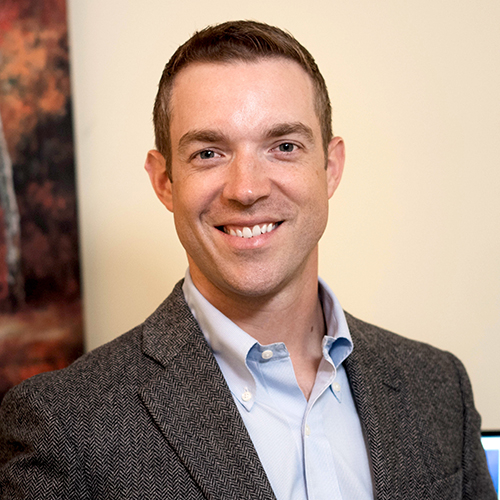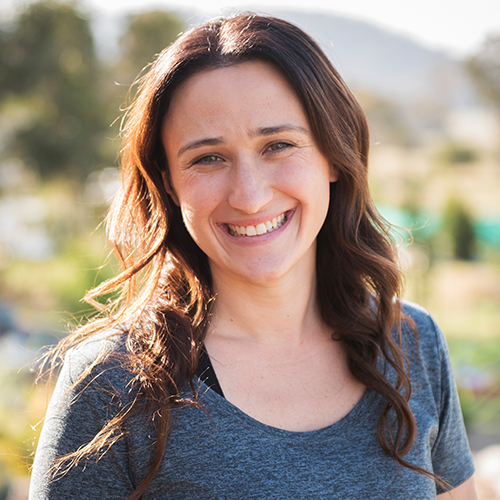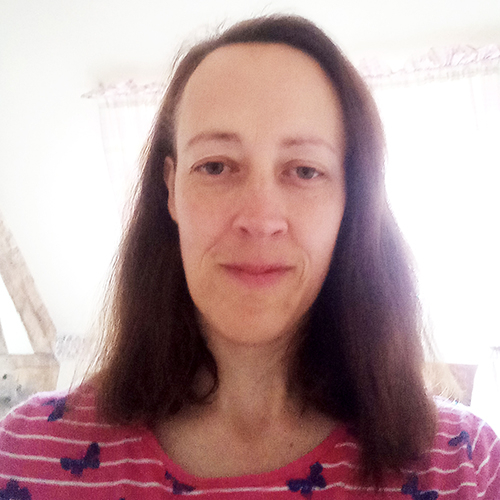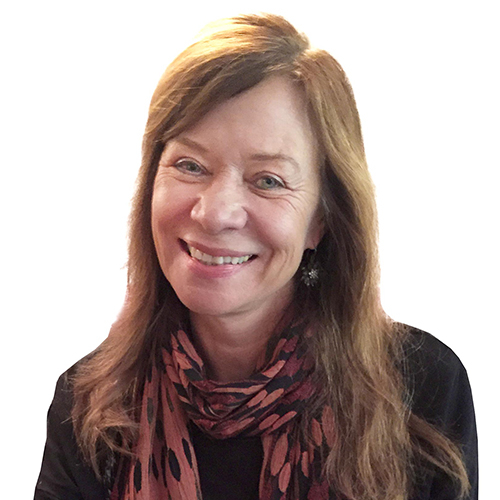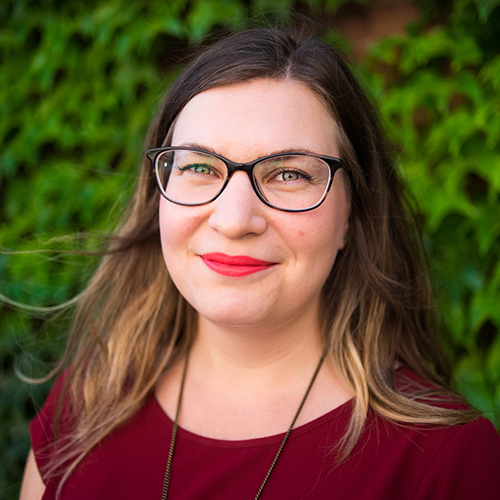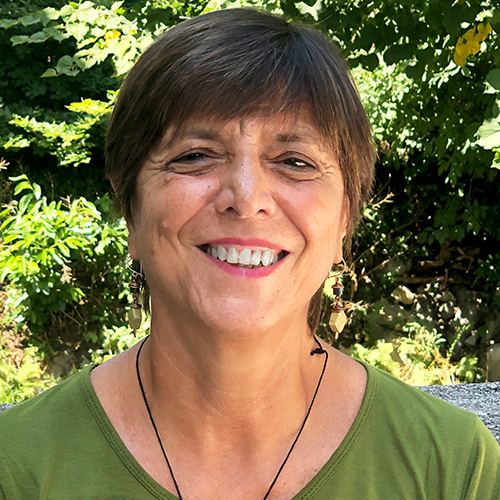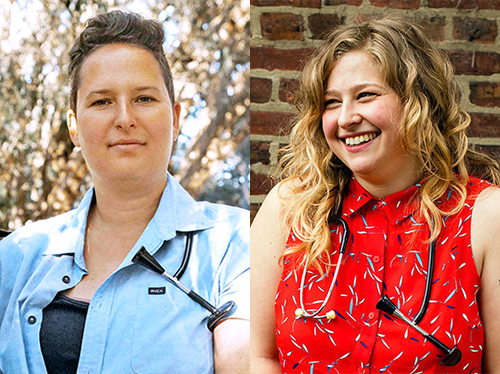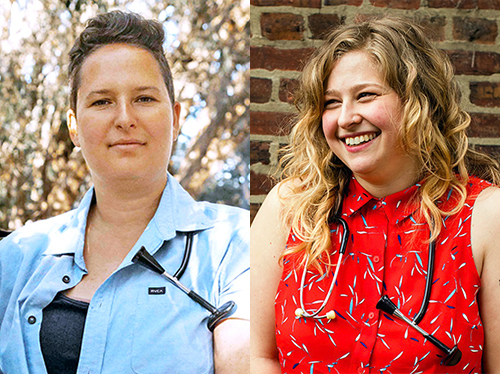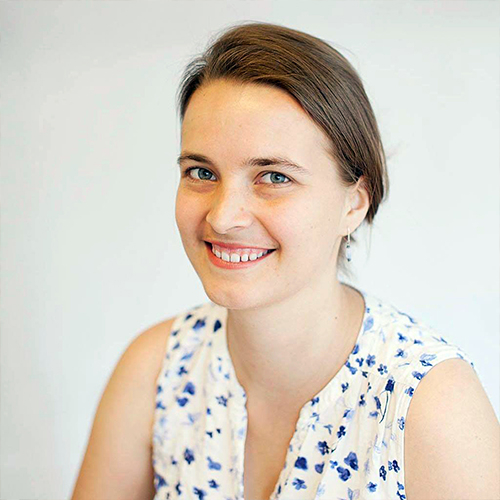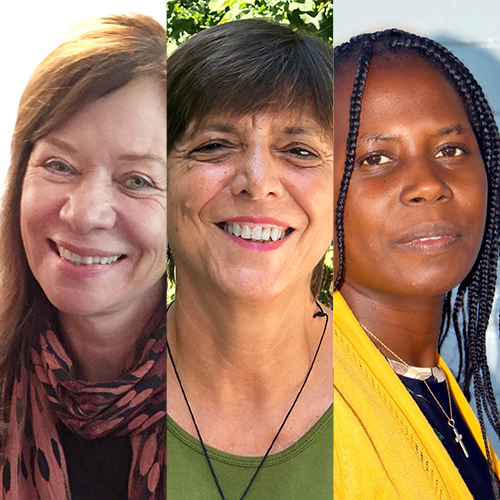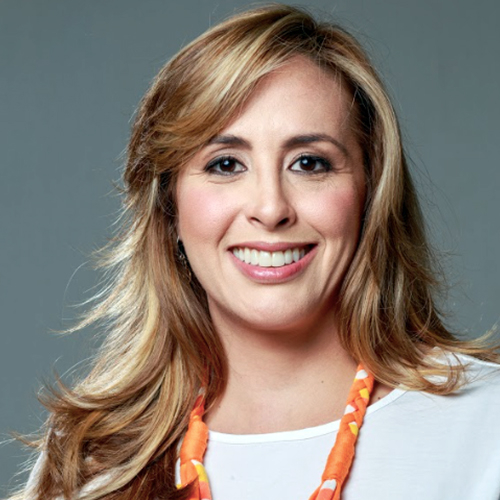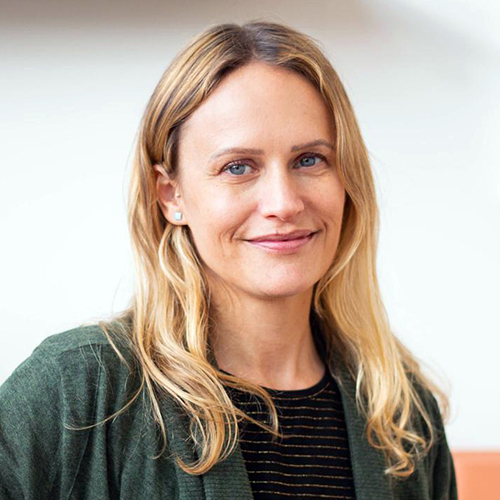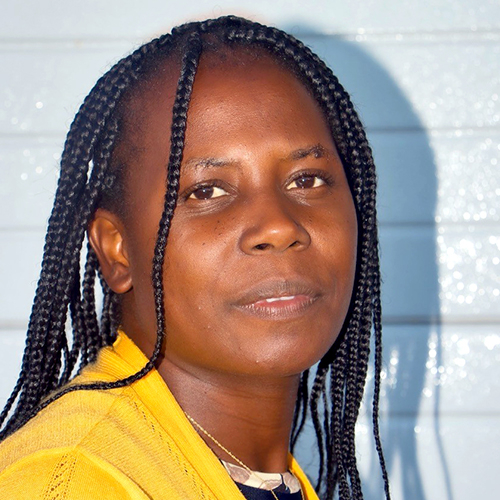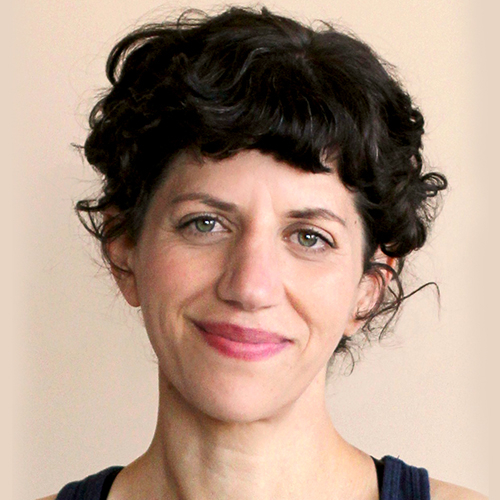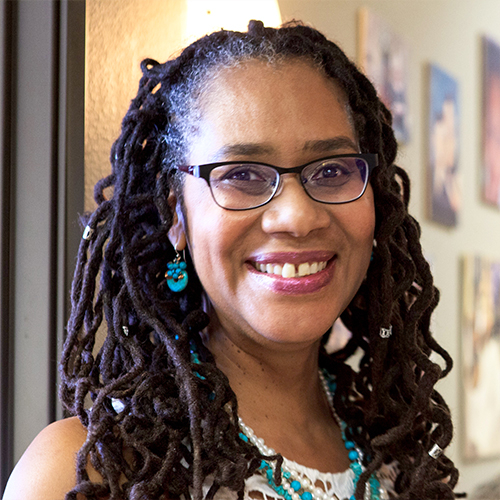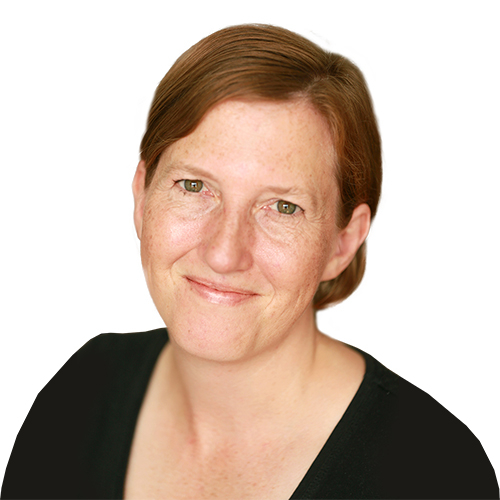 2023 Speakers & Topics
2023 Speakers & Topics
Dr. Andrew Dorough is a native of St. Louis, Missouri. He attended Westminster College in Fulton, Missouri, and graduated with a Bachelor of Science in biology. He then earned his Doctor of Chiropractic Degree from Logan College of Chiropractic in St. Louis, Missouri. He later earned a post-graduate certification from the International Chiropractic Pediatric Association (CACCP). He is qualified to deliver highly skilled and safe treatment to pregnant and postnatal patients and to neonatal and infant patients. Dr. Dorough enjoys providing collaborative care. He currently works in a family medicine clinic which boasts a breastfeeding medicine physician IBCLC, along with other IBCLCs, two nurse practitioners and a physician assistant. He assesses and treats infants with various forms of structural issues, including but not limited to cranial bone deformation (plagiocephaly), torticollis, and tongue and neck dysfunction, as related to feeding difficulties and infant well-being.
The perinatal period along with labor and delivery, is complicated and miraculous. The midwife and chiropractor are in a unique position to honor and assist this miracle and process. This presentation will delve into how midwives and chiropractors can work collaboratively to improve outcomes for clients. Learn about how the Webster technique is specifically designed to prepare the birthing person for an optimal and less stressful experience during their labor and delivery. The attendees will better understand how to find a chiropractor who practices webster technique and how to explain this type of care to the birthing person they are working with.
Bernadette is a midwife with a Master in Public Health (MPH), core and pelvic floor specialist, published author and previous pant wetter. She has worked in midwifery across Australia from remote Aboriginal Communities to big city hospitals to publicly funded homebirth. She spent a year volunteering as a midwifery educator in the Solomon Islands and teaches midwifery emergency courses in rural and remote areas around Australia. She was awarded the Sidney Sax award for best overall performance in her MPH. She is also the Founder and Creator of Core and Floor Restore – online education and exercise programs, workshops, and consultations. Her passion is to enable people to use their bodies and minds to their greatest ability in all aspects of life. A big part of her work is centered around emotional and physical birth trauma and postpartum recovery. She offers free online antenatal classes and co-host's "The Great Birth Rebellion" an evidence-informed podcast. Bernadette’s life mission to bring the rate of birth trauma down to zero whilst simultaneously improving postpartum care. She has epically birthed two babes at home and recovered from incontinence and prolapse. When she isn’t working or studying you can find her out bush, camping and hiking or splashing in the bath at home with her boys.
Up to 75% of women will experience a prolapse in their lifetime. 1 in 3 will experience urine incontinence and 1 in 10 faecal incontinence. Around 60% of women experience diastasis recti. Add in pelvic girdle pain, a hypertonic pelvic floor, perineal and vulva trauma, vaginismus, vulva varicosities, anal fissures and haemorrhoids and most women, at some point, will describe their body as feeling broken.
Midwives play a crucial role in assisting women in the prevention and treatment of these conditions. International guidelines and clinical standards advise that pregnant and postpartum people should be doing pelvic floor muscle training (PFMT). This however, is not just as simple as doing Kegels while waiting at traffic lights. In order to provide best care, midwives need a deeper understanding of the physiology of the core and pelvic floor in pregnancy, birth and postpartum.
This presentation will enable a deeper understanding of the physiology of the core and pelvic floor during pregnancy, birth and postpartum. You will learn practical techniques to assist women in protecting their core and pelvic floor during these stages, including how best to support physiological birth and what we can do when interventions occur. We will also cover techniques and realities for postpartum healing and evidence-based advice to managing existing conditions.
I studied Biology at the University of York (UK) before training as a midwife in Norwich (University of East Anglia, UK) I have been a stay at home parent for the past few years but continue to read on the physiology of birth which is my passion and have written for MIDIRS midwifery magazine. I am a member of AIMS (Association for the Improvements in the Maternity Services) UK and an Associate member of the Royal College of Midwives.
Labour and birth cause huge changes in the neurophysiology, involving multiple hormonal and neurological systems. These will be discussed in detail and how this knowledge can be used in midwifery practice. The recent concept of "birthing consciousness" describes changes in maternal consciousness during labour (Dahan et al, 2020). The physiology of attachment and effects of parent-neonate separation will also be discussed, especially surrounding neonatal care.
Renowned expert Elizabeth Davis has been a midwife, reproductive health care specialist, educator and consultant for over 40 years. She is internationally active in promoting physiologic, undisturbed birth and is widely sought after for her expertise in midwifery education, legislation, and organizational development. She is the author six widely translated books on birth, sexuality, and female psychology, including “Orgasmic Birth: Your Guide to a Safe, Satisfying, and Pleasurable Birth Experience,” “The Rhythms of Women’s Desire: How Female Sexuality Unfolds at Every Stage of Life,” and the textbook “Heart & Hands: A Midwife’s Guide to Pregnancy and Birth,” now in an updated 2019 5th edition (see https://elizabethdavis.com for details). She served as Regional Representative and Education Committee Chair for the Midwives Alliance of North America (MANA), as President of Midwifery Education Accreditation Council (MEAC), and as midwife consultant to the State of California’s Alternative Birthing Methods Study. She is the recipient of the California Association of Midwives’ Brazen Woman Award, and Midwifery Today’s Lifetime Achievement Award. She is Co-founder of the MEAC accredited National Midwifery Institute, and author/instructor of Heart & Hands Coursework.
Shoulder dystocia is considered one of the most dangerous complications of birth, as corroborated by the high number of malpractice claims resulting from it. Despite this, experts cannot agree on what defines it, what causes it, or whether or not it is possible to predict it. As for treatment, the HELPERR mnemonic is standard of care, but is this truly the best response with fully mobile clients, or does it reflect the limitations of hospital birth with epidural anesthesia?
In this presentation, the physiology of undisturbed birth, including cardinal movements the baby must accomplish to minimize the likelihood of shoulder dystocia developing, will be explained, with an examination of how common hospital practices, such as the use of Pitocin during labor or maternal positioning in second stage, can undermine these. Because this complication carries a high degree of urgency, time-efficient techniques will be presented for both anterior shoulder dystocia and bilateral shoulder dystocia, with indications for follow up for the birthing person and the newborn.
Dr. Lesley A. Tarasoff is a Canadian Institutes of Health Research-funded Postdoctoral Research Fellow in the Department of Health and Society at the University of Toronto Scarborough. She is a leading scholar on the perinatal health of women with disabilities; Dr. Tarasoff is a co-author of the first known clinical practice guidelines on labour, delivery, and postpartum care for people with physical disabilities (see Berndl et al., 2021, JOGC) and of several systematic reviews and studies on the perinatal health outcomes and care experiences of women with disabilities in Canada. Primarily drawing on qualitative methodologies, her broader program of research aims to understand and address disparities and inequities in reproductive, perinatal, and mental health and health care experienced by often-stigmatized and marginalized groups, namely women with disabilities and sexual minority women. She holds a PhD in Public Health Sciences, with a Specialization in Women’s Health, from the University of Toronto. She is an advocate of midwifery care and even more so after the birth of her son in 2021.
Women with physical, sensory, and intellectual/developmental disabilities experience significant social, health, and health care disparities. Recent data show that their pregnancy rates are increasing. However, little is known about the perinatal health outcomes and care experiences of women with disabilities. In this presentation, I will provide an overview of research concerning the perinatal health outcomes and care experiences of women with disabilities, specifically highlighting findings from a National Institutes of Health-funded study conducted in Ontario, Canada.
From population-based health records data, we found that women with disabilities experience higher rates of perinatal health complications than women without disabilities. From interviews with women with disabilities and health and social service providers, including midwives, we identified barriers to optimal perinatal care for women with disabilities, including failures to meet accessibility and communication needs, with particular gaps in care identified in the postpartum period. This presentation will conclude with a discussion of implications for midwifery practice, identifying ways in which the midwifery model of care may best address the challenges experienced by women with disabilities during pregnancy, delivery, and the postpartum period; these include longer appointment times, the ongoing process of informed consent, home visits, and extended support in the postpartum period.
I am an Independent midwife, freelance midwifery teacher. I completed a BsC in Midwifery and a Master Degree at King's College and City University of London. I have worked as a community midwife and a in a Birth center in London at University college and at st Thomas hospital .I am a certified acupuncturist specialized in obstetric acupuncture. I am teaching nationally and internationally workshop for midwives on the use of acupressure for labour preparation, induction of labour and for pain relief. I am using acupressure whiting my clinical practice, providing antenatal classes and facilitating home birth. I strongly advocate the use of acupressure internationally as it will allow midwives to expand their role, becoming more complete and independent practitioner. Acupressure being drug –free and therefore having not harmful teratogenic effect, provides a much safer and satisfying childbirth experience as well as facilitating a more natural and less medicalized childbirth.
Acupressure is the application of pressure to acupuncture points. It originates in ancient traditional Chinese medicine, based on the concept of meridians or channels carrying QI , or energy, throughout the body. In good health Qi moves smoothly, through the channels, however excess, deficiency or blockage of Qi may cause pain and illness.
Acupressure is used as a technique for unblocking these occlusions, and restore good health. The stimulation of these points has effects on blood flow to the uterus, cervical dilatation movement of the baby, release of endorphins and oxytocin helping the mother to relax, promoting physical and emotional wellbeing. Acupressure can be used from 37 weeks to encourage beneficial hormonal responses for labour preparation and encourage the baby to move into an optimal position. Learn more about the results of recent research on the use of acupressure during labour and delivery and how acupressure can be incorporated into your care of clients.
Marea Goodman (she/her) is a licensed midwife specializing in pregnancy, birth, postpartum, and conception care for the LGBTQ+ community. A graduate of the National Midwifery Institute, Marea got her license from the California Medical Board in 2015 and spent the following year and a half working at birth centers in El Paso, Texas and Ciudad Vieja, Guatemala. She founded her midwifery practice, Restore Midwifery, in 2016 in the Bay Area, and is now serving the community in Santa Cruz, CA.
Aside from midwifery, Marea is also a writer whose work has been featured by the Huffington Post, Ms Magazine, and Mother.ly. She co-authored the book, Baby Making for Everybody—Family Building and Fertility for LGBTQ+ and Solo Parents, which is set to be published in April, 2023. She lives in Santa Cruz with her three children and her wife, Andrea Ruizquez, who is also a midwife.
Ray Rachlin (she/they) is a Licensed Midwife and Certified Professional Midwife providing home-birth midwifery care, fertility and home-IUI care, and community education throughout the greater Philadelphia area and South Jersey. Ray founded Refuge Midwifery in 2017 to create a home for families not served by our current healthcare system.
In addition to their midwifery practice, Ray has been immersed in promoting affirming reproductive care for transgender patients and has taught midwives, doctors, nurses, and birth professionals throughout the country on trans-inclusive fertility, birth, and postpartum care. In their private practice, Ray specializes in natural fertility support for individuals with prior hormone use. Ray is the co-author of the forthcoming book Baby Making for Everybody—a Guide for LGBTQ+ and Solo Parents, coming April 2023.
Ray earned their Bachelor of Science in midwifery at Birthingway College of Midwifery in Portland, Oregon, in 2016 and also holds a Bachelor of Science in political science, urban studies, and labor studies from Queens College. Ray is a member of the Queer and Transgender Midwives Association. Ray lives with their partner and child in Philadelphia, PA.
In Midwifery-Led Fertility Care, midwives Ray Rachlin, LM, CPM and Marea Goodman LM, CPM will educate midwives on how to provide fertility care in an out-of-hospital setting. In this presentation, Ray and Marea will review the different options people with uteruses have to create pregnancies with fresh and frozen sperm and the success rates for each. They will focus on lower-intervention insemination options that can be performed at-home or in a midwife’s office. The presenters will also review fertility awareness method counseling and how midwives can support their clients to determine ovulation, as well as insemination timing and navigating sperm banks, ACOG preconception care, and fertility lab work.
Throughout the presentation, Ray and Marea will provide an introduction on how to provide culturally appropriate care to the LGBTQ+ population and transgender parents. They will also discuss how to apply infertility research to LGBTQ+ people, and when to refer to different levels of care.
LGBTQ+ people face many obstacles to healthcare access including a lack of knowledgeable care providers, other people’s lack of awareness of identity issues, and outright prejudice and discrimination. This leads to both underutilization of healthcare and overmedicalization, and contributes to health disparities and poor outcomes, especially by individuals with intersecting marginalized identities. Midwives are in a unique position to provide excellent, culturally competent care to this population. However, viewers should not expect to become culturally competent in caring for the LGBTQ+ population in this one hour class. There will be resources for further learning provided at the end of the presentation.
Molly Dutton-Kenny is an American & Canadian midwife. Trained in the USA in community homebirth midwifery, she now makes Canada her home and practices as a Registered Midwife with her loving family & community. She supports education for midwifery students through National Midwifery Institute, and community education around full spectrum pregnancy loss and abortion, respectful pelvic exams, and midwifery-based management and support of these experiences, centering home and holistic medicine as options for most people. You can read more about her work at www.mollyduttonkenny.com.
Pelvic Exams are so commonplace in midwifery practice that we often fail to appreciate their significance in our client’s lives. Pelvic exams have the potential for both trauma and trust-building in the midwife-client relationship.
Trauma manifests in our clients lives and bodies in a myriad of ways. Statistically, a majority of our clients have experienced various direct traumas in their lives, with a significant portion focused on pelvic trauma & assault. Additionally, clients hold the epigenetic trauma from historical wrongs in gynecology and treatment of bodies in various lineages as a result of white supremacy and toxic patriarchy.
All bodies deserve respectful care. When done carefully, pelvic exams have the potential to be safe, trust-building experiences with the benefit of seeking key medical information. Together, we will interrogate the common pelvic exam from a trauma-informed lens and consider our practices carefully. We will build strategies for respectful pelvic exams, including managing pain & anxiety in clients, what to do when clients do (and don’t!) disclose past trauma, avoiding triggers, and consider modifications to our own practices.
Renowned expert Elizabeth Davis has been a midwife, reproductive health care specialist, educator and consultant for over 40 years. She is internationally active in promoting physiologic, undisturbed birth and is widely sought after for her expertise in midwifery education, legislation, and organizational development. She is the author six widely translated books on birth, sexuality, and female psychology, including “Orgasmic Birth: Your Guide to a Safe, Satisfying, and Pleasurable Birth Experience,” “The Rhythms of Women’s Desire: How Female Sexuality Unfolds at Every Stage of Life,” and the textbook “Heart & Hands: A Midwife’s Guide to Pregnancy and Birth,” now in an updated 2019 5th edition (see https://elizabethdavis.com for details). She served as Regional Representative and Education Committee Chair for the Midwives Alliance of North America (MANA), as President of Midwifery Education Accreditation Council (MEAC), and as midwife consultant to the State of California’s Alternative Birthing Methods Study. She is the recipient of the California Association of Midwives’ Brazen Woman Award, and Midwifery Today’s Lifetime Achievement Award. She is Co-founder of the MEAC accredited National Midwifery Institute, and author/instructor of Heart & Hands Coursework.
Sarah Mlambo is a registered Nurse and Midwife who has international and intercultural nursing and midwifery experience in both the public and private sector. She has several qualifications from Zimbabwe, Namibia and South Africa. Sarah Mlambo is currently finalising her PhD where she focusses on a model for midwives in the facilitation of childbirth-choices. She is a published author and Midwifery educator in Namibia.
Loredana Zordan is an Independent midwife, freelance midwifery teacher. She completed a BsC in Midwifery and a Master Degree at King's College and City University of London. She has worked as a community midwife and a in a Birth center in London at University college and at St. Thomas hospital. She is a certified acupuncturist specialized in obstetric acupuncture.
She is teaching nationally and internationally workshop for midwives on the use of acupressure for labour preparation, induction of labour and for pain relief.
She is using acupressure whiting the clinical practice, providing antenatal classes and facilitating home birth. She strongly advocates the use of acupressure internationally as it will allow midwives to expand their role, becoming more complete and independent practitioner. Acupressure being drug –free and therefore having not harmful teratogenic effect, provides a much safer and satisfying childbirth experience as well as facilitating a more natural and less medicalized childbirth.
Prolonged labour is a common cause of birth interventions and can be a challenging situation for the birthing parent, family and care providers. This panel brings together midwives from different parts of the world to share their unique perspectives on the physiological and psychological causes of prolonged labour, interventions that may help and the possible implications for both the birthing parent and the fetus/newborn.
Patricia Díaz L., Woman passionate about accompanying Women and Families through their Conscious and Connected gestational, birthing and parenting journeys. She is a trained Pediatrician, IBCLC and Doula. Graduated as a Surgeon physician and Pediatric Specialist from the Central University of Venezuela, at the main Children’s Hospital of the country; JM de los Ríos. From her formative years, she fell in love with the dynamic process of Breastfeeding and the unique physical, nutritional, immunological, qualities of it, along with the transformative emotional and spiritual bond that formed between the new parents and their baby: "Being a witness to that first magical and intimate human contact, is one of the most wonderful sensations in the world; I have ever experienced”. Dr. Patricia Díaz graduated as Promoter and Consultant of the Lactation Center ""Mi Gota de Leche” ( “ My Drop of Milk” ) at the Hospital J.M. de los Ríos, with the endorsement of UNICEF. She was part of the First Cohort of Diplomats in Breastfeeding and Complementary Feeding Practices, of the Faculty of Medicine, at the Central University of Venezuela. Member of the American Academy of Breastfeeding Medicine (ABM) and the International Lactation Consultant Association (ILCA). Trained as a Doula, at the Auroramadre Center in Venezuela. National and International speaker. With more than a decade of experience, Patricia, strongly advocates for Human Lactation Education, at her private practice in Venezuela, where she currently is the Chief of Pediatrics at La Trinidad Medical Teaching Center. At this center, she has co-designed the Respectful Birthing Protocol (to honor the Sacred Hour, Skin to Skin and Rooming in; most recently updated alongside Neonatology Department, to adjust it for COVID19 context). Also through her social media platform @PediatríaAutana (Tree of Life), she educates, advocates for Breastfeeding families and designs educational tools for Parents and Caregivers, Families and Teachers, in the most innovative formats, adjusted to their needs, concerning topics associated with Prenatal Prolactation Prep, Human Lactation, Parenting, Growth and Neurodevelopment, Pediatrics.
The early days of a breastfeeding journey, especially if it is the first one and there is not enough breastfeeding culture or support of the new family, bring challenges and risk factors for an unwanted early termination. Among all the causes for an early abandonment of exclusive breastfeeding, there is the ghost of insufficient milk supply, associated in popular belief (and unfortunately) sometimes also in professional health provider’s belief, with little or no evidence-based information on human lactation.
In order to make an appropriate and timely approach to a slow weight gain baby, we must take into consideration anatomical, functional and behavioral/emotional factors. Learn more about how to establish an appropriate nutritional diagnosis, based on the use of globally standardized anthropometric index, for exclusively breastfed children, factors that may contribute to a misperception of slow weight gain in a breastfed child, the difference between failure to thrive and slow weight gain and how to establish safe nutritional recovery strategies, focused on the dyad and aimed at preserving breastfeeding.
Rebecca Feldman is Certified Nurse Midwife, and Psychiatric Nurse Practitioner who practices in a dual role in the field of reproductive psychiatry. She is the founder and director of Brooklyn Parent Support, a group mental health practice providing group and individual therapy and medication management. Rebecca is a graduate of Frontier Nursing University in midwifery, and New York University with a Post Master’s in Psychiatric Nursing. She has practiced perinatal psychiatry at the Motherhood Center of New York, and Zucker Hillside Hospital. As a midwife, she created a mental health program housed within the Department of Obstetrics and Gynecology at Woodhull Medical Center, a large public hospital in Brooklyn. She is currently an adjunct professor at New York University, providing lectures to the midwifery and psychiatric nurse practitioner programs. A frequent guest speaker on the topic of promoting access to parental mental health care, she has recently presented for the American College of Nurse-Midwives, the National Perinatal Association, and Postpartum Support International.
Perinatal mood and anxiety disorders are the most common complication of pregnancy. Midwives have a key role to play in assisting clients with decision making around use of psychiatric medications in pregnancy and lactation. This presentation will explore client considerations around mental health in pregnancy and postpartum, including the risks of untreated mental illness in these life phases. How midwives may counsel their clients as well as when to refer them for mental health care, will be an additional element of this presentation.
Common Post-partum Mood and Anxiety Disorders will be described in detail as well as a summary of evidence-based treatment options. Following this part of the presentation, the main classes of psychiatric medications commonly used in pregnancy and lactation will be described. Considerations for the use of SSRIs, atypical antipsychotics, mood stabilizers and benzodiazepines will be discussed.
Sarah Mlambo is a registered Nurse and Midwife who has international and intercultural nursing and midwifery experience in both the public and private sector. She has several qualifications from Zimbabwe, Namibia and South Africa. Sarah Mlambo is currently finalising her PhD where she focusses on a model for midwives in the facilitation of childbirth-choices. She is a published author and Midwifery educator in Namibia.
“Incomplete, inaccurate, biased or unavailable patient education, resources and lack of opportunity for pregnant patients to have meaningful conversations with their healthcare providers about their individual care” (Stirling, Vanbeisien & McDougall, 2018, p. 13) is a major setback when women are being facilitated with childbirth-choices. Initiating the facilitation of childbirth-choices early in pregnancy gives the woman some time to weigh the options and for the healthcare provider to clear any misconceptions relating to childbirth types, yet this is a largely un-investigated area of concern in Namibia.
Improving the outcomes for women to have a positive childbirth experience and ensure that the SDG 3 of health for all is achieved exploring the experiences of women and that of midwives was important to ensure the former. Taking into consideration the Universal Rights of Childbearing women and Respectful maternity care (RMC) with a special focus on two of the rights which are “right to information, informed consent and refusal and respect of her choices and preferences, including the right to her choice of companionship during maternity care &” and “right to liberty, autonomy and self-determination and freedom from coercion”. This presentation will contextualize the experiences of women and midwives alike in the facilitation of childbirth-choices. A developed model that will help midwives in the facilitation of childbirth-choices for a positive childbirth experience for women and their families.
Sonia is an occupational therapist specializing in pelvic floor therapy with a focus on the perinatal population.
In her practice, she uses awareness training, targeted exercise, breath work, yoga, manual therapy and lifestyle modification to help her clients find relief from conditions such as pelvic girdle pain, prolapse, dyspareunia, incontinence, constipation, diastasis recti and general deconditioning connected to pregnancy and postpartum. Sonia is skilled in helping her clients navigate the psychological and social impact that pelvic floor issues have on relationships and day to day life. In addition to her work as a pelvic floor therapist, Sonia teaches pre/postnatal yoga classes and leads new parent support groups. She is also a part of the continuing education program at Ancient Song Doula Collective and teaches workshops on the pelvic floor for Doulas and pregnant and postpartum people.
Sonia graduated from SUNY Downstate with a Master’s of Science in Occupational Therapy and received a Bachelor of the Arts in Dance from Oberlin College. Sonia trained in pelvic floor rehabilitation with Herman & Wallace Institute and Lindsey Vestal of the Functional Pelvis.
Sonia lives in Brooklyn, New York with her husband and two children.
Pain with sex and sexual activity postpartum is common. This can have a profound impact on quality of life and relationships during a period of time when birthing people are already managing seismic changes to both identity and intimate relationships. Birthing people deserve education around what to expect, how to prepare and how to address any discomfort and pain with return to sex postpartum. Too many providers are not given knowledge, tools and strategies to support their patients with resuming this important activity of daily living. In this interactive and embodied presentation, I will share how to talk about the return to sexual activity with your patients, what preparation may be helpful, and strategies for addressing and treating different categories of sexual pain.
Dr. Tanya Khemet Taiwo is an assistant professor in the Department of Midwifery at Bastyr University. She also provides midwifery care on a part-time basis at CommuniCare Health Centers, a Federally Qualified Health Center with clinics in urban and rural communities around the Sacramento area. Dr. Taiwo is an epidemiologist whose research examines the role of maternal prenatal stress on child neurodevelopment, and how these stressors interact with environmental exposures. She serves as co-director of the Community Engagement Core at the UC Davis Environmental Health Sciences Center. She is also a research fellow at The Birth Place Lab at the University of British Columbia. At the Birth Place Lab she’s collaborating on the Giving Voice to Mothers Study, a community based participatory research project that examines how race, ethnicity and birthplace affect maternity care in the United States. Tanya comes from a family tradition of midwives, stretching back at least three generations, she received her midwifery training at Seattle Midwifery School, and apprenticed with midwives in Seattle, Senegal and Jamaica. She is committed to the revitalization of the tradition of midwifery within the African American community, and the eradication of the ethnic disparities in perinatal health outcomes.
This presentation will cover the role of environmental exposures and pregnancy outcomes with a focus on the vulnerabilities of the fetal brain. The historical foundations of environmental disparities will be examined as well the how other sociodemographic factors amplify their effects. Participants will also learn how they can provide effective health education for prevention and ways to advocate for policies to reduce exposures for pregnant people, and the most impacted communities.
A graduate of the London Film School, Toni Harman has produced and directed a number of internationally distributed documentary films including MICROBIRTH, about the origins of the human microbiome, FREEDOM FOR BIRTH, about the struggle for women's rights in childbirth and DOULA!, about the work of birth and postnatal doulas. Toni’s extensive research for MICROBIRTH led to her co-authoring the books THE MICROBIRTH EFFECT and YOUR BABY’s MICROBIOME. Toni is also a professional speaker at international conferences about the science of the microbiome and epigenetics. As Educational Leader of the MICROBIOME COURSES online school, with over 37,000 enrolled students, Toni combines knowledge gained from researching the subject for ten years with her extensive experience of running educational one-day and multiple-day workshops for adult learners.
Eight years ago, Toni Harman made a documentary called MICROBIRTH. In the film, Hannah Dahlen, a professor of midwifery says, “Turn the microscope on birth. It’s a really important part of a human being’s life”. If we do turn the microscope on birth, we discover the science of the microbiome. This is the science that strongly supports the midwifery profession.
In this presentation, Toni explains some of the critical microscopic events happening during pregnancy, birth and breastfeeding, and how these events are supported by the work of midwives. Toni makes a case that midwives support the vertical transmission of beneficial microbes from mother to child. This helps protect a child’s long-term health. Toni argues that if we can better support midwives, we can better support parents, and in turn, we can better support and protect the health of the next generation.
 Dr. Speakers Full Name
Speaker Credentials
Dr. Speakers Full Name
Speaker Credentials
Annet Mulder first became interested in breastfeeding in the year 2000, when she became a mother for the first time. During and because of her own breastfeeding experiences, in 2002 she became a volunteer with the Dutch breastfeeding Organization and in 2008 sat for and passed the exam administered by the International Board of Lactation Consultant Examiners. As an International Board Certified Lactation Consultant, she now
Annet Mulder first became interested in breastfeeding in the year 2000, when she became a mother for the first time. During and because of her own breastfeeding experiences, in 2002 she became a volunteer with the Dutch breastfeeding Organization text text text text more name mulder first became interested in breastfeeding in the year 2000, when she became.
 Dr. Speakers Full Name
Speaker Credentials
Dr. Speakers Full Name
Speaker Credentials


